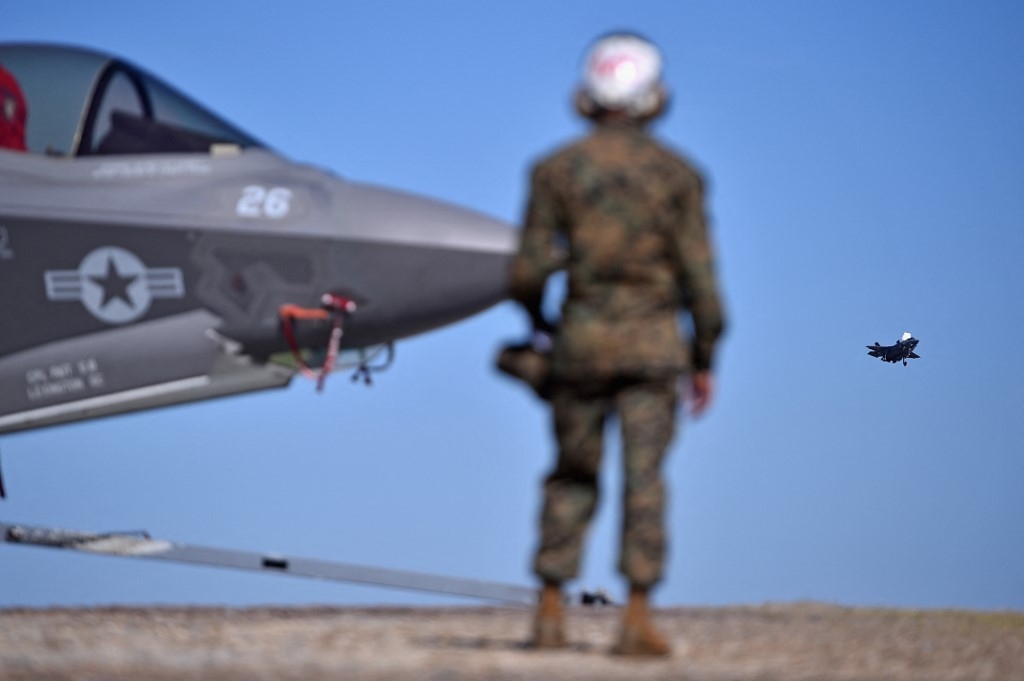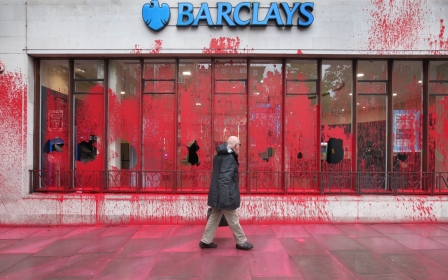War on Gaza: UK approved dozens of military export licences to Israel since 7 October

More than 100 UK export licences for the sale of weapons, military equipment and other controlled items to Israel have been approved since October 2023, new data has revealed.
No licences were revoked after the Hamas-led attacks on 7 October, nor have any been refused with 185 applications still pending, according to the Department for Business and Trade.
The British department's data, released on Tuesday, also shows that more than 300 licences, including those permitting the export of UK arms and military equipment to Israel, were in place at the end of May.
Military equipment covered under those licences include components for military aircraft, vehicles and combat naval vessels, the department said.
The data release comes after months of pressure from MPs and campaigners for greater transparency from the government about its decision-making process on arms exports to Israel, with many calling for an immediate suspension of sales.
New MEE newsletter: Jerusalem Dispatch
Sign up to get the latest insights and analysis on Israel-Palestine, alongside Turkey Unpacked and other MEE newsletters
Concerns were heightened after a UN investigation found that UK-made components were likely used when Israel bombed a facility in Gaza that was housing British doctors working for UK and US organisations in January and after three British nationals were killed in the Israeli attack on the World Central Kitchen convoy in April.
Last month, in a lively Business and Trade committee hearing, MPs expressed frustration that the government had released more data about the exports to the High Court, where two groups are challenging UK arms sales to Israel, than what was available to the politicians.
The department said it had chosen to release the information "given the exceptional circumstances, and the significant Parliamentary and public interest".
Outcry over 'business as usual'
Campaigners on Tuesday said the fact that not a single licence had been rejected since 7 October was "shocking", with some raising concerns that the data was too sparse and will only leave the politicians and public it was meant to serve with more questions.
Neil Sammonds, senior campaigner for the UK-based War On Want, told Middle East Eye: “It should be shocking that the UK has not revoked any arms licences to Israel given the clear risk they might be used in violations of international law, let alone in multiple war crimes and genocide."
'It is merely the decision makers in government who are preventing this. On every other level, there should be an arms embargo'
- Chris Doyle, Council for Arab-British Understanding
“But the latest data is lamentably no surprise given the UK’s jettisoning of international law and domestic law obligations to sustain tooth-and-nail complicity in Israel’s ferocious, decades-long onslaught against the Palestinians."
Tim Bierley, campaigner for UK-based Global Justice Now, said the government's figures "show they’ve given Israel the key to the weapons factory, underlining the severity of British complicity in the war crimes being committed by Israel".
“As Israel flagrantly disregards humanitarian law, carrying out brutal attacks on civilians, aid workers and hospitals, any government with a shred of moral fibre would have stopped sending arms long ago."
Emily Apple, media coordinator at the Campaign Against Arms Trade, said while the data showed it was "business as usual for arms dealers to break international law", she was alarmed by the lack of transparency and accountability in the figures provided.
"This data release was supposed to address the political and public interest in arms sales to Israel. The figures released do not do this as they do not give any details of the equipment exported or its value," Apple said.
"If and when we have a new Labour government, it is vital that they not only impose an arms embargo but address the lack of transparency in our export licensing system."
This incoming British government will face a huge decision about what to do about arms sales, Chris Doyle, director of the Council for Arab-British Understanding, said.
He noted that polls have shown for several months that the majority of the British public support a ban on arms sales for the duration of the conflict.
“I’m not somebody who advocates that you should make policy based on opinion polls but it is extraordinary when there is such an overwhelming majority of people who think like this and frankly it’s backed up by the evidence on the ground,” Doyle said.
“It is merely the decision makers in government who are preventing this. On every other level, there should be an arms embargo. There is a justification for it. There is public support for it. It is merely the leaders of our country and other countries who have decided not to.”
Middle East Eye delivers independent and unrivalled coverage and analysis of the Middle East, North Africa and beyond. To learn more about republishing this content and the associated fees, please fill out this form. More about MEE can be found here.





